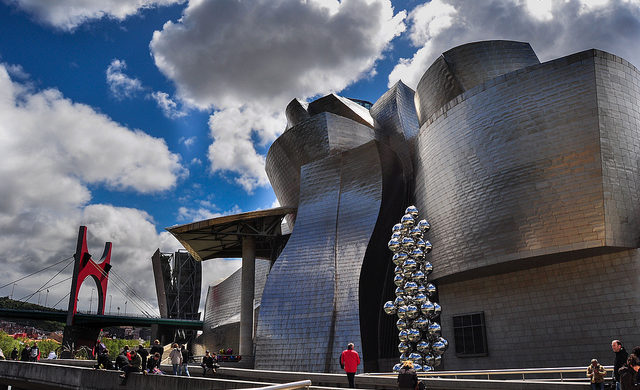Neil Gorsuch is the hero America deserves
Eight years ago, at the dawn of the first Trump presidency, the White House was the locus of an ambitious project to weaken the president. Justice Antonin Scalia was dead. GOP senators had kept his seat on the Supreme Court vacant for more than a year, in order to ensure that it would be filled […]


Eight years ago, at the dawn of the first Trump presidency, the White House was the locus of an ambitious project to weaken the president.
Justice Antonin Scalia was dead. GOP senators had kept his seat on the Supreme Court vacant for more than a year, in order to ensure that it would be filled by a Republican. And President Donald Trump’s top legal aides were weighing who he should appoint.
At the time, the Republican Party’s traditional constituents — business and small-government conservatives — were still the primary drivers of GOP policy. Trump had not yet converted his party into a cult of personality centered on his expansive use of power, and the lawyers who dominated his judicial selection process remained committed to a weaker executive branch.
Meanwhile, a federal judge in Colorado, who was largely unknown outside of the legal profession, had spent the years leading up to Trump’s first election auditioning for a seat on the nation’s highest Court. The scion of a Republican noble family — his mother led the Environmental Protection Agency under President Ronald Reagan — then-Judge Neil Gorsuch spent his final years on a lower court calling for a massive power shift away from the executive branch of the US government and toward the judiciary.
Among other things, Gorsuch argued that the Supreme Court should overrule Chevron v. Natural Resources Defense Council (1984), a seminal decision instructing courts to defer to policy judgments made by federal agencies. He also advocated for reviving an out-of-fashion legal concept called the nondelegation doctrine, which gives judges broad discretion to strike down laws delegating power to the executive.
Gorsuch’s narrow view of executive power, as journalist David Kaplan reported in a 2018 book, “proved decisive in clinching” the Trump White House’s decision to place Gorsuch on the Supreme Court. At the time, the Federalist Society, the powerful conservative legal group that Trump relied on to select many of his first-term judges, was obsessively committed to weakening the executive branch’s power to regulate. And no judge had done more to align himself with this broader agenda than Neil Gorsuch.
Flash-forward to the present, and Gorsuch seems triumphant. Less than a year ago, the Supreme Court overruled Chevron in an opinion joined by all of the Court’s Republicans — including Gorsuch and Trump’s two other, similarly minded Court picks. And, while these same justices haven’t yet brought back nondelegation, they invented something known as the “major questions doctrine,” which does more or less the same thing. The Supreme Court used this newly created doctrine often to strike down Biden administration policies, even policies that were explicitly authorized by a federal statute.
Many prominent Democrats, including the three who sit on the Supreme Court, complained about this expansion of judicial power, and were vocally frustrated that the Court continuously stymied their president’s plans. Now, however, Democrats may decide that Gorsuch was right in his anti-executive crusade.
Trump’s first few months back in office — with its trade wars, questionable deportations, and attempts to flout the Constitution — have been an advertisement for the idea that the United States should have less state capacity, that it is too easy for presidents to shift policy in surprising and avulsive ways, and that we’d all be better off if some wise elders in black robes step in to restore order. That sense is only likely to grow if, in the coming months, the Supreme Court strikes down Trump’s tariffs and ensures that no one else is deported without due process.
Gorsuch, and other judges who believe in a weak executive, now have an opportunity to be the heroes who save America from a chaotic leader who doesn’t seem to hold the law in high regard. All they have to do is reject partisan politics and hew to the values that got them their jobs in the first place.
The Court’s Biden-era decisions are wrong, incoherent, and exactly the sort of thing that could save the economy from Trump
During the Biden administration, the Court’s Republican majority gave themselves sweeping new powers — powers that they largely took from the executive branch. The most significant is the so-called major questions doctrine, which allows the Court to veto executive branch actions that a majority of the justices deem too ambitious.
Proponents of this doctrine often summarize it with a quote from a 2014 opinion by Justice Antonin Scalia: “We expect Congress to speak clearly if it wishes to assign to an agency decisions of vast ‘economic and political significance.’” Thus, if the executive claims the power to do something with big economic or political implications, the Court will view that claim with extraordinary skepticism.
There are many reasons to doubt that Court’s Republicans have applied this doctrine in good faith. The major questions doctrine is brand-new, and has never been used against any president who isn’t named “Joe Biden.” The Republican justices used it to strike down Biden administration policies that were unambiguously authorized by federal law. They’ve never produced a majority opinion which bothers to explain where this doctrine comes from.
Some individual justices have attempted to do so, but their explanations are often risible. Justice Amy Coney Barrett, for example, once claimed that the major questions doctrine can be derived from a parable involving a babysitter.
Realistically, however, if you are a small business owner on the cusp of bankruptcy, because your entire livelihood depends on importing components that have more than doubled in price thanks to Trump’s tariffs, you are unlikely to care whether Barrett’s Parable of the Babysitter is persuasive to lawyers. The primary virtue of the major questions doctrine is that, if it is applied in a fair and nonpartisan manner, it would enable the courts to shut down Trump’s trade war altogether.
Recall that this doctrine targets executive branch actions that have vast economic or political significance. The tariffs have already thrown the stock market into turmoil, and expert analysis of their likely impact ranges from severe to catastrophic. The Budget Lab at Yale, for example, predicts that the average US household will lose the equivalent of $4,900 worth of income. If that’s not a matter of vast economic or political significance, it is hard to imagine what is.
The justices, in other words, don’t need to invent a new weapon if they want to destroy the tariffs — they already have one that is tailor-made for this case. The question is whether they will use it.
But will the Republican justices actually break with Trump?
The current Court’s approach to executive power often has a split personality. While most of the justices have joined majority opinions that twisted the law in knots to limit the power of federal agencies controlled by the president, they have also often been hyper-protective of, and deferential to, Trump himself — hence the Court’s decision holding that Trump has broad immunity from criminal prosecutions.
Even so, there are two reasons to think that the Court may ultimately strike down Trump’s tariffs.
One is that a wide array of Republican legal elites are lining up against the tariffs. The first lawsuit challenging them was filed by a right-wing legal shop that has historically aligned itself with many of Trump’s goals. In one of the main lawsuits challenging the tariffs, a wide range of former officials recently filed an amicus brief supporting the plaintiffs. They include the co-chair of the Federalist Society’s board, and three former Republican senators — one of whom is John Danforth, an early mentor to Justice Clarence Thomas.
The other reason is that, because justices do not have to stand for reelection, their views do not always change as their political party evolves. Instead, Supreme Court appointees often reflect the political views that their party held at the time when they were appointed.
President Franklin D. Roosevelt, for example, chose his justices because he was confident that they would uphold New Deal programs that were a high priority for him. He did not care much at all about race, the issue that would consume liberalism a decade after Roosevelt left office, and so many of them were widely out of step with the liberal consensus by the 1950s. Former Justice Jimmy Byrnes, who Roosevelt placed on the Court, would go on to become a segregationist governor of South Carolina.
Similarly, President George W. Bush chose Chief Justice John Roberts in large part because Roberts took an expansive view of Bush’s power to incarcerate suspected terrorists in Guantánamo Bay, Cuba. A few years after Bush left office, Republicans united behind a lawsuit seeking to repeal Obamacare, and many of them were upset when Roberts voted only to weaken the law and not repeal it altogether.
But Bush could not have known, in 2005 when he chose Roberts, that five years later Bush’s successor would sign a health care law that Republicans would hate. So his White House did not vet Roberts to ensure that he was a reliable vote against expanding access to health care. Roberts remains a strong proponent of expansive presidential power on questions involving national security. That might help Trump label people “terrorists” and disappear them to a foreign prison in El Salvador. But on topics related to domestic and economic policy,
Roberts’ ideology often reflects what conservative Republicans believed in 2005, and doesn’t always match what they believe today.
It is entirely possible, in other words, that at least some of the Republican justices will decide that they care more about traditional conservative free trade principles — and the view of executive power they held when they ascended to the highest court — than they will about backing a Republican president’s signature policy initiative.
And, if that’s the case, they have a ready-made, long sought-after tool they can use to simultaneously eliminate those tariffs and cement the judiciary’s control over the executive branch for a generation or more.








































































